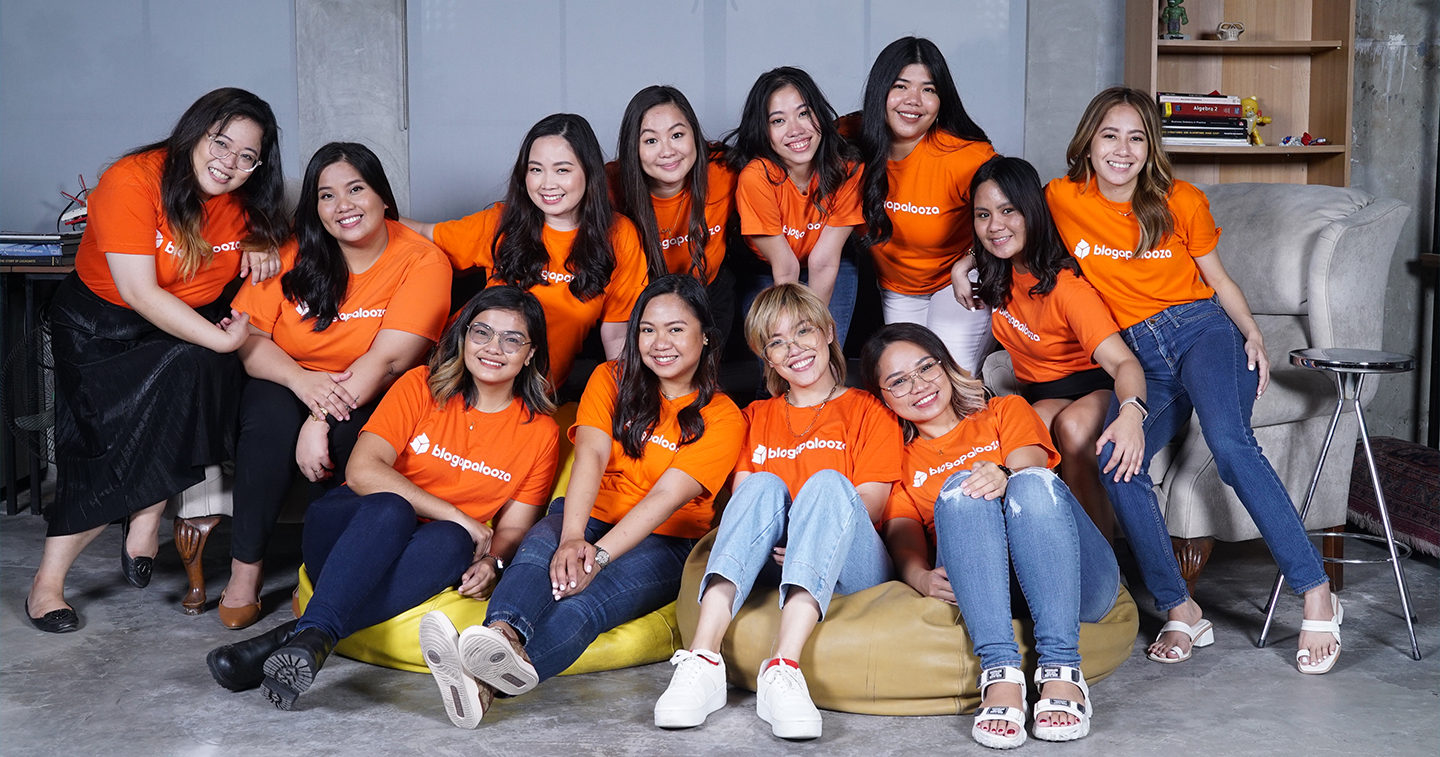MANILA, PHILIPPINES — Influencer marketing has grown to be one of the most effective channels to reach, engage, and convert customers around the world. With the Philippines being one of the most active markets on social media, this marketing technique has spun into one of the most sought-after mediums for brands, businesses, and agencies alike.

Ace Gapuz, the CEO of the Philippines’ premier influencer marketing company Blogapalooza says this influencer marketing is not going anywhere any time soon.
“We can find many definitions of ‘influencer marketing’ on the internet, but the way I would define it is that influencer marketing is a collaborative form of marketing that mainly involves working with key opinion leaders (KOLs) to communicate a message,” Ace said.
What started out as passion projects for most people have turned into sustainable sources of income, even full-blown businesses, for some. As Ace put it, these types of influencer marketing executions usually come in the form of creative content such as thought leadership posts or personality-driven activations. Over time, what began as a simple blog post mentioning brands has turned into immersive on-ground events attended by the industry’s top opinion leaders: the influencers.
Ace herself is an influencer in her own right, one who has been in the industry since its early days when so-called “influencing” fell solely on the shoulders of bloggers, vloggers, writers, and celebrities.
“I started very early in blogging; that was around 2001-2002 and I was just around 11-12 years old. I remember it was an ‘in’ thing back in the day to have a blog and I also enjoyed writing and telling stories, so having a blog for me back then was just another one of the many hobbies that I used to have. I maintained that blog for almost a decade but decided to shut it down because college happened.”
“Fast forward to 2015, the original founders of Blogapalooza (originally just an event) fully turned over all of Blogapalooza’s assets under my management. I decided to formalize everything into a company: registered it as a corporation, strategized for its growth, worked on its expansion, and the rest, as they say, is history.”
Ace’s numerous active roles in the industry throughout the years have cultivated within her a unique picture of the Philippines’ journey in influencer marketing. For her, the marketing shift toward content first showed in 2015 when she noticed the growing interest of companies for bloggers.
“The terms “content creator” and “influencer” were not yet a thing at that time,” she noted.
This interest actually translated to budget appropriations to compensate bloggers, and when social media platforms and creators rose to meet the changing digital tides, this gradually made it to allocations and strategies as well. “Compared to blogs that require a bit more time to digest, social media platforms gave rise to content that was bite-sized and more easily digestible compared to longform articles usually found in blogs.”
Year after year since that first show of interest, Ace observed more and more brands allocating “test and learn” budgets to creator- and influencer-led executions. “I saw the first big boom in 2018 when influencer marketing started getting some attention here in the Philippines. Marketers started to see that people do not anymore listen to brands; they listen to what their friends, peers, and people they follow online say.”
As the Philippine market gradually adopted word of mouth as one of its most effective ways to impact and influence buyers, it was in 2020 that this alternative means of advertising quickly turned into a lifeline for some businesses. “I would say though that the real big boom came in 2020, in the middle of the Covid-19 pandemic when the world was locked down and forced to be fully digital. Also, in the Philippines, there were massive movements in the media scene, especially in TV, with network franchise issues and all. I’d like to believe all of these massive movements in media as we know it really led to the influencer phenomenon that we know of today.”
As Filipinos became warier about spending money due to the uncertainties of the pandemic, and consumers grew more conscious of the businesses they were supporting, endorsements from reliable and trustworthy KOLs proved essential.
The receptiveness of Filipinos to influencer marketing is also largely cultural, as Ace describes. For one, the Philippines is generally a celebrity-crazy country: “We love our celebrities, we like getting the latest news about famous people, we like talking about the lives of the who’s who, and in general, we are a culture that values what other people think. This makes influencers a good source of information and recommendation, and maybe even considering these influencers as a ‘marketing tool’ to sway people towards a certain belief, opinion, or call to action.”
Although Ace believes that influencer marketing in the Philippines is still at its early stages, she believes that there are still plenty of unexplored opportunities in the industry. “I see how advanced and professionalized the industry is in the US, but for us here in Southeast Asia, as we have a very relationship-driven culture, a huge portion of influencer marketing is still very much PR-driven. I always say that influencer marketing is the mashup of PR, advertising, media, and creatives, which makes it a very interesting industry.”
As the Filipino market grows more accustomed to influencer marketing, the pool of Filipino influencers also grows alongside it. This is also supported by the democratization of digital tools, which enables more and more people to create content and distribute it online.
“At this time, there are still some businesses that have yet to move forward and acknowledge that creators and influencers already have real commercial value. Because of this, many creators are still undervalued and unappreciated. The reverse is also true: there are creators that are grossly overvalued and overpriced, because of traditional ways of thinking. There are plenty of refinements, push and pulls, and conversations that have yet to happen in this industry, and we at Blogapalooza are very happy to be at the forefront of it,” she stated.
Blogapalooza, Ace’s pride and joy, is the first organization in the country to see influencer marketing as a viable and powerful tool to engage communities that are diverse, yet inclusive. “We were the first who believed that the industry was a sleeping giant, and so during our early years, we built the foundations of what is now a 50,000-strong community of content creators, social media influencers, and digital talents who are all proudly Pinoy.”
Through its agency business Blogaccounts, media channel BlogaPlay, talent management arm BX, and annual BlogaFest event, it helps businesses improve their business metrics through creator-led executions.
Through her role as the CEO of Blogapalooza, Ace is standing at the forefront of the Philippine influencer industry. Through its many business units that engage with the different faces of influencer marketing, it boldly adapts to, as well as shapes, the industry’s changing trends and behaviors in creator-led advertising with its #ElevateInfluence mantra.

Influencer marketing is at a pivotal stage in its journey right now in the Philippines as Filipinos slowly return to their pre-pandemic activities with post-pandemic learnings. The industry is continually evolving and adapting to both changes within and without it, and it requires much grit, innovation, and inspiration to thrive alongside its gigantic tides.
However, if Ace Gapuz’s words can provide any inclination for businesses and brands, it’s that influencer marketing is a sure tool to get messages across — and it’s high time marketers take it as seriously as other forms of traditional marketing in informing, engaging, and converting audiences from mere viewers to paying customers, and even to loyal promoters.








